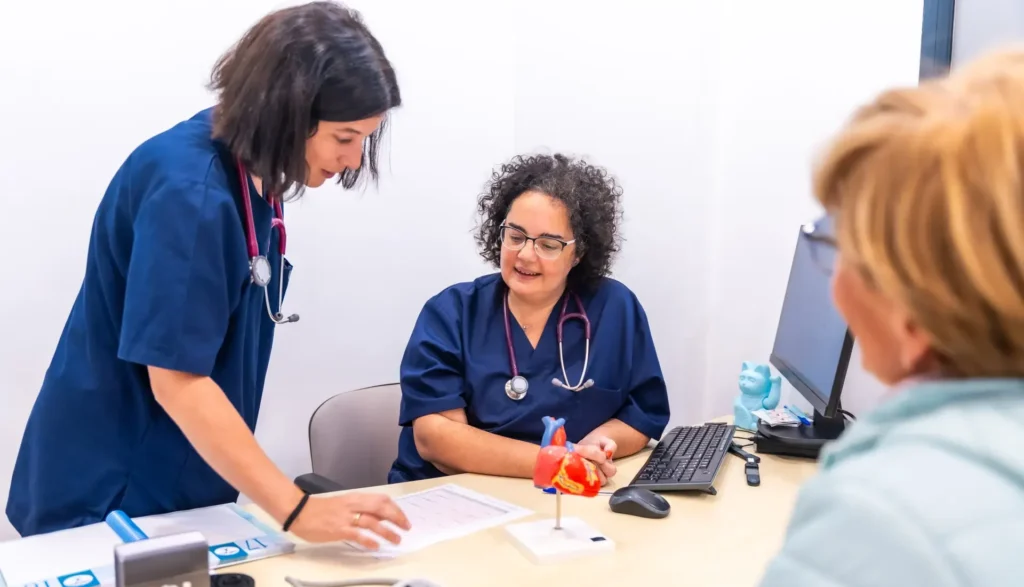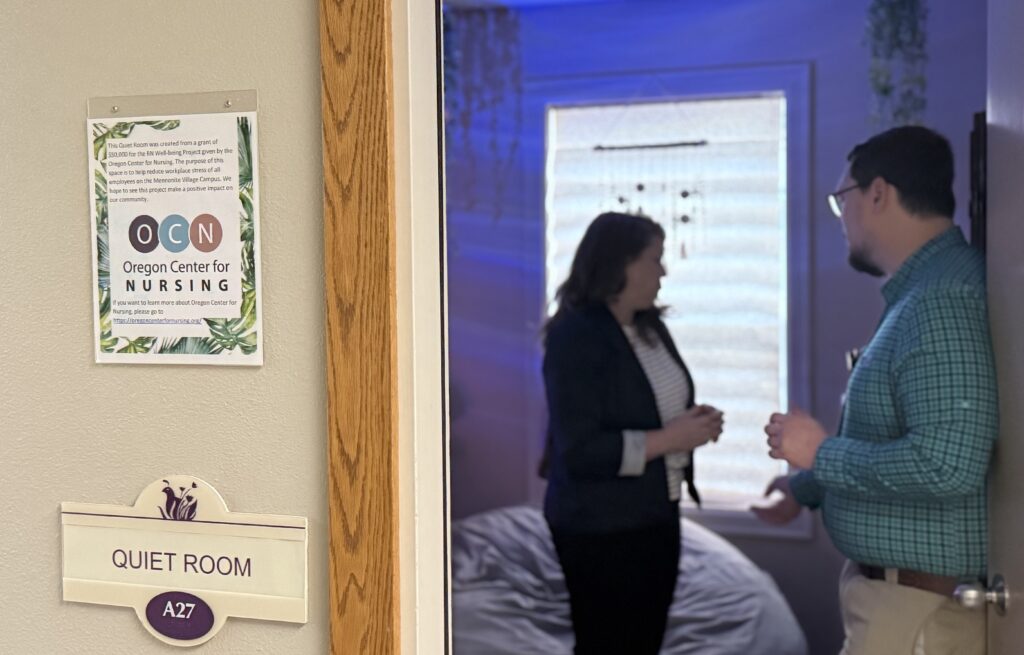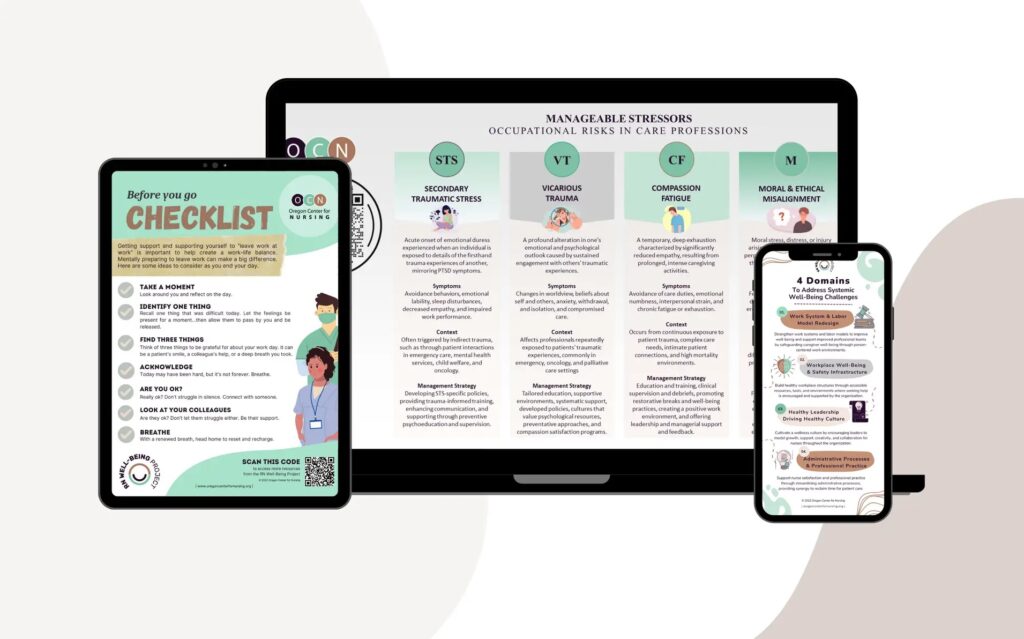
Prioritizing the Well-Being of Oregon's Nursing Professionals
From understanding workforce stressors to implementing evidence-based interventions
Despite investments in wellness programs and resilience trainings, the stress on Oregon’s nursing workforce continues to grow. What if the challenge isn’t a lack of effort—but a need to rethink the approach?
In an effort to rethink this approach, the RN Well-Being Project, led by the Oregon Center for Nursing (OCN), began a statewide initiative focused on identifying and addressing the root causes of nurse burnout, emotional strain, and workforce instability. Our work moves beyond individual interventions to focus on the systems, environments, and structures where nurses work.

What Employers Need to Know
Nurse employers want to help their employees, but support is often centered around self-care – whether that’s a package of sessions with a therapist, a gym membership, or a wellness stipend. While these efforts support personal wellness, they may not be the most effective for occupational well-being.

What Nurses Need to Know
Nurses may experience systemic and environmental stressors (called “removable stressors”), and mental factors of stress (called “manageable stressors”). We address these stressors and help nurses understand what is in their control versus what they can advocate for organizationally or systemically.

What We’ve Learned: Surveys and Research Reports
Our 5,000+ response statewide survey revealed the depth of stress and burnout among Oregon’s nurses—insights that reshaped our understanding of workplace well-being. Explore these findings alongside related research that sheds light on the broader nurse vacancy crisis.

From Insights to Action: RN Well-Being Case Studies
We’ve awarded 18 grants totaling more than $846,000 to nursing organizations seeking to improve the well-being of their employees through implementation of evidence-based interventions. These pilot projects kicked off throughout 2023. Write-ups of the results are coming soon, along with a downloadable portfolio that synthesizes the key learnings across all funded projects.

Additional Resources
RNWB has developed a suite of free, printable tools to support nurse well-being in practice, leadership, education, and policy. Whether you’re a nurse, an educator, an employer, or a healthcare leader, you’re welcome to use these research-backed materials to support conversation, reflection, and change.
